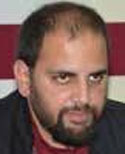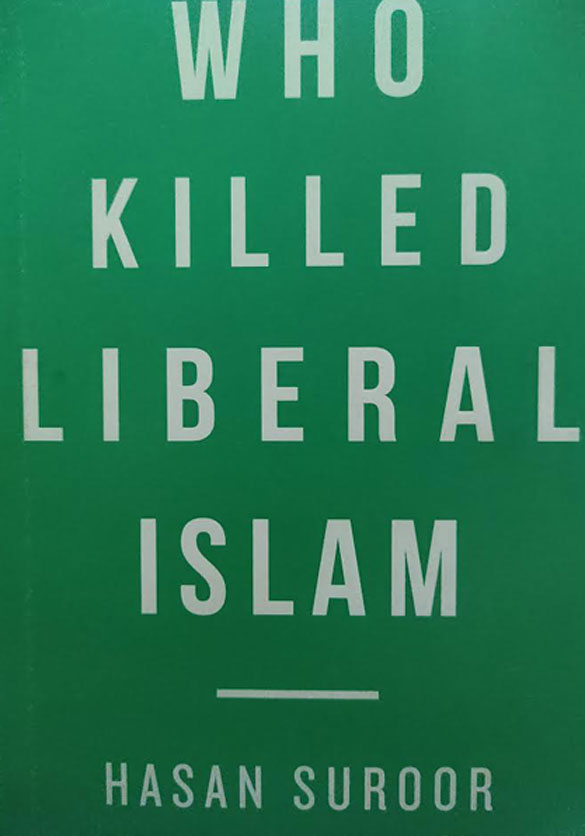Liberal Islam Rendered Irrelevant by Liberal Muslims

By
Mushtaq Ul Haq Ahmad Sikander, New Age Islam
15 June
2023
Who
Killed Liberal Islam
Author:
Hasan Suroor
Publisher:
Rupa Publications, New Delhi, India
Year
of Publication: 2019
Pages:
234, Price: Rs 595
ISBN:
9789353335939

-------
Liberalism
has been an enlightening value of Renaissance. Renaissance has its roots in
atheism, and everything that stands antagonistic to religion. Liberalism, has
been constructed as something parallel to religion. Hence, to criticize some Muslim
as being Liberal is to deprive the privilege of legitimacy of religion and God
consciousness. This term has been abused by the mullahs and conservative Ulema,
so much that few Muslims would have the courage to call themselves as Liberals.
Also, Liberalism in its spirit allows freedom and paves way for hedonism, if
not restricted by Law. Religion, like any code of conduct follows certain
rules, and Liberalism too has its own set of rules. But these rules have been
constructed in the minds of common Muslims, as espousing and encouraging sexual
anarchy, freedom without restrictions, materialism, maximizing pleasures and
rebelling against God.
Can
Liberalism and Islam co-exist? This question has been debated and we have
contradictory and opposing views of scholars and ulema. For some they both are
compatible, for others they are compatible with certain exceptions and for
others they are incompatible and cannot be mixed. Hasan Suroor, a veteran
journalist and progressive Muslim has tackled this question in his new work,
Who Killed Liberal Islam. As the title suggests, Suroor holds Islam to be
Liberal and probes this important question, while identifying and deliberating
about the reasons and factors responsible for annihilating Liberal Islam.
Primarily the problem is to identify Liberal Muslims and verifying authenticity
of those who are commonly presented as the Liberal and progressive face among
Muslims. Suroor, writes in the Introduction, “I question the authenticity of
the kind of Muslims who are commonly presented as the liberal and progressive
public face of the community. Yes, they are liberals, but Muslims?” (P-xv)
While
further probing this question in detail, Suroor wants the reader to understand
about what the Liberals have done, “The central point the book seeks to make is
that the left-wing Muslim intellectuals paraded as the community’s beating
liberal heart-the Muslims who write op-ed pieces and appear on TV to denounce
Sharia-have in fact done more damage to the cause of Muslim liberalism than good.
They are not agents of change. On the contrary, by coming across as
confrontational and hostile, they have the effect of undermining the few
moderates in the community who are trying to bring about change.” (P-xvi-xvii)
The debate
about Liberalizing Islam for Suroor included in the work is, “the focus of my
book is on Indian Muslims, I also look at the broader global debate over
liberalizing Islam. Drawing on historical debates and writings, I contest the
routinely made claim that a historically liberal and tolerant religion has been
‘suddenly’ hijacked by extremists, and show how, in fact, Islam lost to the
hardliners very early in its history.” (P-xix)
Suroor,
laments about the intellectual timidity of Indian Muslim Liberals, who in most
cases indulge in self-flagellation, while maintaining silence about most
pressing issues. They also opt for the path of the least resistance. The
Liberal Muslims for Suroor are Mustafa Kamal Ataturk and Reza Shah Pahlavi, who
chose a brand of aggressive secularism in conservative and religious societies
of Turkey and Egypt. The need now is to patronize such Liberal brand of Islam,
not that of self-loathing and timid form of liberalism. After, the advent of
Communist revolution, which has its impact in Muslims societies too, the divide
between Mullahs and Marxists became evident, although it is not valid now.
Muslim Marxists tried to initiate a series of social reforms, but now there is
little discussion or enthusiasm about reforms among Muslims, as they have been
rendered into oblivion by more focus on identity related issues.
It is a
factual reality that Islam has a chequered history, from where both liberals
and extremists try to cheery pick few incidents, to construct a narrative that
is flawed and non-holistic. A big event in the free India, that troubled the
constitutional values like secularism and liberalism, was the demolition of
Babri masjid in 1992. To construct the Muslim restraint in the aftermath of
Babri demolition, as dawn of liberalism is to believe a mirage. They observed
restraint and did not react violently en-masse because they had no option left,
except to be patient and not react. If they had reacted violently, it certainly
would have resulted in their genocide. Secularism like Liberalism is compatible
with Islam, according to some scholars but not all believe so. Muslims who
leave Islam, become apostates and apostasy is punishable by death. This
punishment should be discarded and scrapped, as it is not needed because the
era of religious persecution is over. No one should be forced to believe in a
set of beliefs, even if that is Islam. Suroor and other writers who have
expressed their views about liberalism and Islam, have missed to mention about
the contemporary Muslim reformers like Dr Asghar Ali Engineer, Prof Amina Wadud
and Dr Rashid Shaz. Also, advocating drinking of alcohol as something that
caliphs, scholars used to drink does not make it lawful, legal and Halal
(P-128). The priorities of Suroor seem to be misplaced, because Liberal Islam
is not synonymous with being alcoholic.
Editor in
Chief, of a progressive website Mr Sultan Shahin in his article observes how
the liberal Muslims are tolerated in India, while exposing the hypocrisy of
Jamaat e Islami, who maintain silence about the minorities in Pakistan. In
India, Muslims being in minority they leave no stone unturned when there is an
attack or untoward incident towards the Muslim minority, but when any similar
attack is carried against the non Muslim minority in a Muslim majority country
then Islamic organizations turn a blind eye to such atrocities. In the end,
while probing the reasons about the failure of liberalism at the hands of
Muslim Liberals, it is articulated, “Partly out of arrogance and partly
naivete, they have taken on the role of great reformers without even making any
attempt to engage with the community. This is typical of their crass approach
and it has nearly done as much damage to the cause of Muslim liberalism as the
mullahs. Their brassy rejection of Shariah and a tendency to classify anyone
who disagrees with them-which means pretty much every practicing Muslim-as a
fundamentalist, has made ordinary Muslims, including reform minded moderates,
suspicious of the liberals. And liberalism itself has come to be seen as a threat
to Muslim identity.” (P-178-179)
There are
some flaws in the book, like the author believes Shah Waliullah and his
movement was Wahhabi in its orientation (P-57). Wahhabi as a term has its
construct in the British colonialism. Suroor is uncritically aping them, that
does not augur well. The book is a good read, and the articles written by
different scholars, also bring forth plurality of views.
------
M.H.A.
Sikander is Writer-Activist based in Srinagar, Kashmir
URL: https://newageislam.com/books-documents/liberal-islam-irrelevant-muslims/d/129996
New Age Islam, Islam Online, Islamic Website, African Muslim News, Arab World News, South Asia News, Indian Muslim News, World Muslim News, Women in Islam, Islamic Feminism, Arab Women, Women In Arab, Islamophobia in America, Muslim Women in West, Islam Women and Feminism
